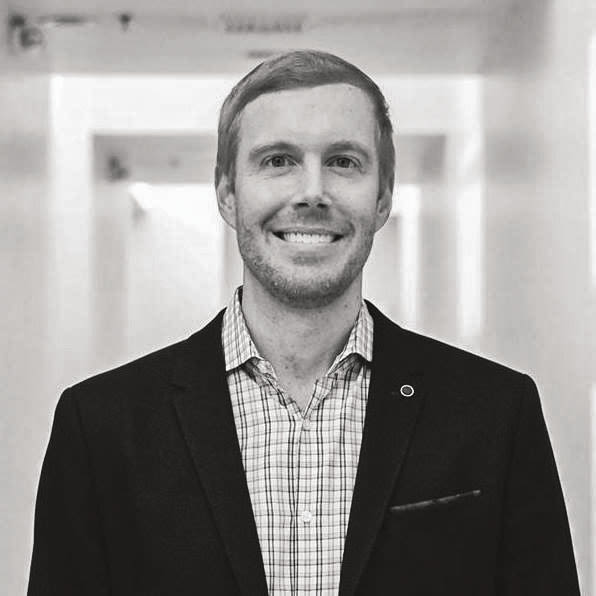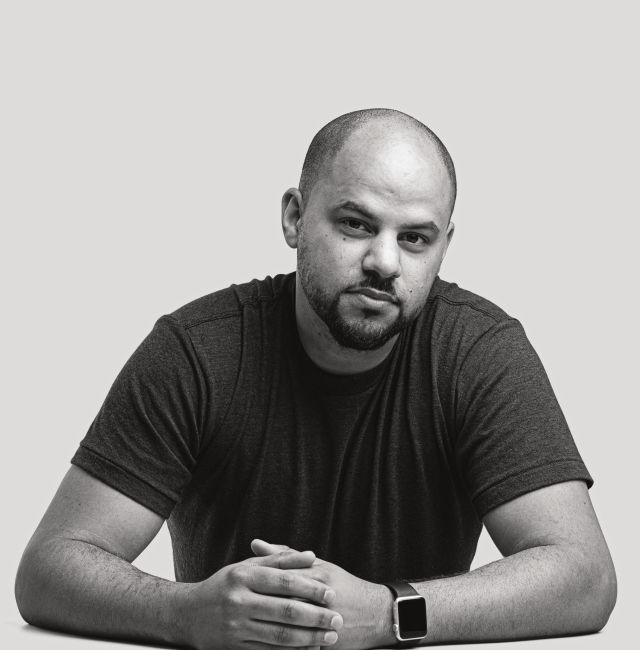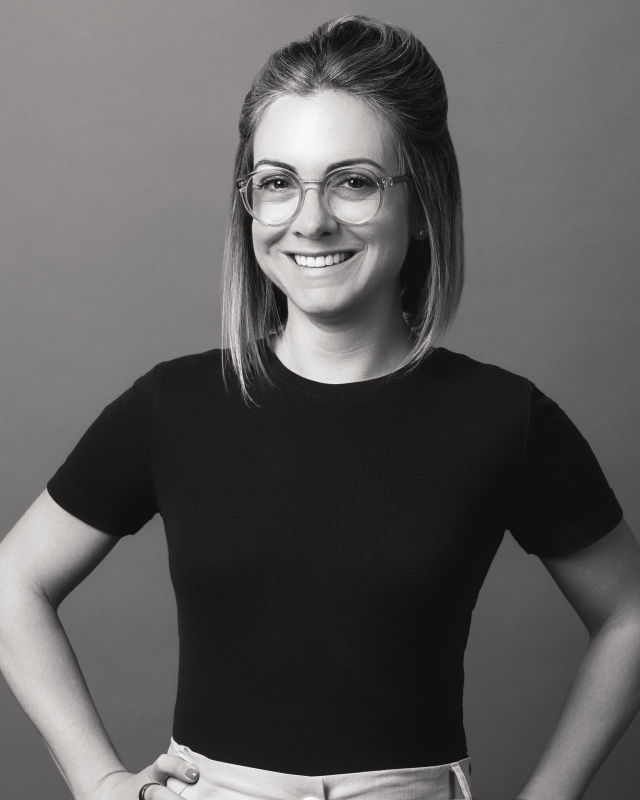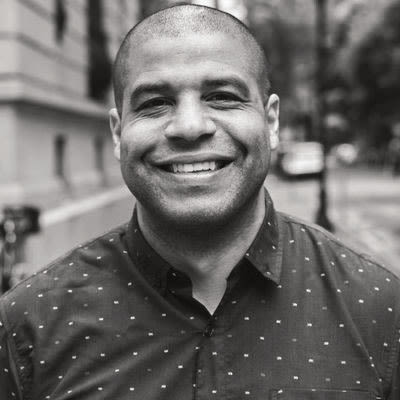We Asked 5 Portland Tech Insiders about the Future of the Industry

Image: Courtesy Ashley Courtier
We asked five local tech insiders to look into their crystal balls and tell us what they think is coming next: from an increase in B2C companies to thinking beyond the office to community accountability, the future of Portland tech is there for the shaping.
Mara Zepeda
Cofounder and CEO of community engagement software company Switchboard
“The challenge is that there’s been an artificial segmentation of ‘tech companies’ in Portland, and the city is starting to understand that we need to be much more curious about the start-up business ecosystem as a whole. The artifice of a tech lens is inherited from Silicon Valley, because our ecosystem is far more diverse and creative and nuanced and culturally specific. We’ve inherited this misnomer of tech. Every business uses technology in some way.
“One of the biggest changes that I’ve seen since I’ve been in Portland is that businesses recognize that they are accountable to the community and are proactively building bridges to fulfill that social contract. My hope and prediction for the future of Portland is that it will recognize the tremendous opportunity it has right under its nose and will reorient the economy to benefit the businesses that are growing in our own backyard.”

Image: Courtesy Athena Ortmann
Skip Newberry
President and CEO, Technology Association of Oregon
“Across the economic metrics we look at, there continues to be growth—both in terms of new companies formed, companies that are setting up satellite offices here through acquisition, or just from the ground up. We’re seeing a lot more growth in tech hiring, so the number of people employed in tech-related occupations is growing. An interesting fact is that roughly 50 percent of all tech employment in Oregon is at nontech companies. So when we’re thinking about the tech industry, some of the biggest tech employers are companies like Nike, Cambia Health Solutions, Banfield.
“We haven’t seen a lot of the same issues that exist in, say, Seattle or the Bay Area, both in terms of upward wage pressure and the cost of acquiring and retaining talent. We’re still a relative bargain compared to those markets. But that’s going to change over time. And it’s still a relatively capital-efficient place to start a company, and that bodes well for at least the near term for our start-up community.”

Image: Courtesy Jelani Memory
Jelani Memory
Cofounder of A Kids Book About ... and Circle Media
“You have the big guys who are all opening up offices—Airbnb, Squarespace, Google, Amazon—and that gives flexibility and options for folks who are software talent, creative talent, design talent, to work for some of the big companies without some of the exorbitant fees or expenses of LA, New York, San Francisco. Go down a tier and you’ve got your big Portland start-ups—Vacasa, Zapproved, Ruby Receptionists, Puppet—showing that we’re building true companies with real value and being a great place to live all at the same time. They are almost all B2B companies. The next rung down are your raised Series C or raised Series A companies that are more in the consumer space. At the bottom of the heap—I’ll throw myself and my current company [A Kids Book About ...] there—are companies trying to launch something out in the world and see what people like.
“Portland’s becoming a player in building meaningful, valuable companies that create world-changing products, and I think that is going to have more consumer companies indexed there as opposed to just B2B companies that have dominated that space and are ultimately where most of the capital is going to. That will be a big part of seeing more of an influx of folks move here, because this will be a place where it’s not just great to start a company, which I think a lot of people believe, but to start a company and raise capital, to be able to build that business.
“The biggest change that I can think of is the entrance of former founders deciding to make angel investments in companies that they understand have a shot at being successful and being able to endure.”

Image: Courtesy Megan Bigelow
Megan Bigelow
Founder and board president, Portland Women in Tech (PDXWIT)
“The narrative over the last, say, seven years has been that there’s a push to be more inclusive and to invest in diversity and inclusion in the [Portland] tech industry. And even though part of that narrative has been around women and people of color, what has mostly taken shape is for white women. The common understanding is that increasing diversity means getting more women at the top, which means getting more white women in engineering positions. Centering it on one type of woman is not going to actually solve the problem as it relates to other underrepresented people. The difference now is that people are actually talking about this meaningfully and recognizing that everything has been centered around white individuals’ perspective. There is a need to change, and they are educating themselves. That is going to, unfortunately, take time to take shape.
“A lot of people are moving to this city that don’t even work in a Portland tech office. They work remotely for a San Francisco company—like myself. That’s a trend that the city is hopefully paying attention to. The [big] number of tech workers here over the next five years are going to be remote workers ... not even going into an office every day. At a macro level, when you talk about ‘What does that culture look like?’ that doesn’t necessarily mean having kumbaya sessions in the office—’cause that doesn’t actually matter to people who don’t go to an office.”

Image: Courtesy Stephen Green
Stephen Green
Investor and founder of PitchBlack
“We’ve got to get rid of this idea that a rising tide lifts all boats. It’s a cop-out, right? We’re in the biggest economic boom in the region’s history—and black Portlanders, their incomes are going down. So at some point we have to have very pointed conversations and say, ‘There are people who are always left out, and I’m going to make a point of focus of making sure they’re included.’ A perfect example would be like Oregon Entrepreneurs Network....They have a [monthly] Pub Talk, which they always do in in the Alphabet District. I would love for once for them to say, ‘Hey, we’re going to take this to Northeast,’ or ‘We’re going to go and we’re going to do a Pub Talk in a black barbershop on MLK.’ The same people will probably come, and they’ll probably get some new ones. That’s a thing that doesn’t cost us any money.
“You can have the best intentions in the world. But if you’re still sitting around thinking, ‘Well, my door is open in the Pearl and anyone could walk through it....’ Well, a lot of people aren’t in the Pearl.”




